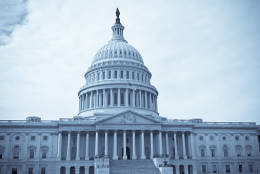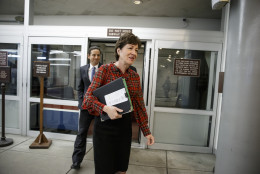Brian Schatz
-
The Senate had a busy weekend, passing five major pieces of legislation that will impact veterans, inspectors general, FBI whistleblowers and others before the close of the 114th Congress.
December 12, 2016 -
The richest nation on earth has the poorest record when it comes to guaranteeing paid parental leave for its people. This is embarrassing.
June 16, 2016 -
The under secretary of Defense for acquisition, technology and logistics assured lawmakers that the DoD is keeping a close eye on the cybersecurity measures of its vendors.
April 22, 2016 -
Rep. Derek Kilmer (D-Wash.) is introducing the “OPEN Government Data Act,” which he said will make the new default standard for government data an "open" one.
April 14, 2016 -
The Government Accountability Office and the Congressional Budget Office defended their increased budget requests to Congress, emphasizing the amount of returns on the investment each agency brings back to the government.
March 09, 2016 -
Members of Congress in the Washington area scored highly yet again on this year's report card put out by Federally Employed Women.
January 28, 2016 -
Sens. Susan Collins (R-Maine) and Brian Schatz (D-Hawaii) have called on Senate appropriations leadership to stop implementing a Defense Department policy that has cut travel reimbursement since Nov. 2014.
December 08, 2015 -
A new Senate bill could guarantee six weeks of paid leave for federal employees who become parents, and let them choose whether to take those six weeks separately or in one shot.
September 15, 2015 -
Companion bills introduced in the House and Senate would give federal employees a 3.8 percent pay raise next year. Federal employees received 1 percent pay raises in both 2014 and 2015, after three years of pay freezes.
January 13, 2015 -
Sens. Ben Cardin (D-Md.) and Brian Schatz (D-Hawaii) introduced the Federal Adjustment of Income Rates (FAIR) Act Friday, calling for a 3.3 percent pay increase for federal employees for calendar year 2015. Federal employee union leaders praised the proposal, which would raise feds' pay more than the 1 percent President Barack Obama introduced in his 2015 budget proposal. The bill is similar to one introduced in March by House Democrats.
May 23, 2014








